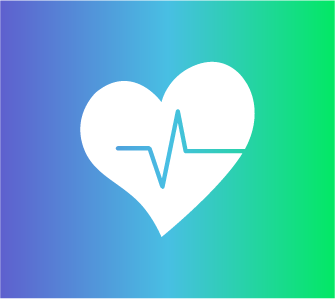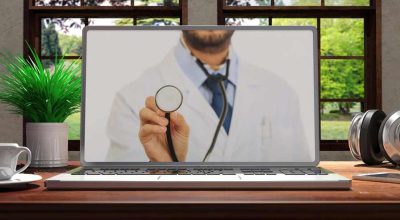In many states, I could lose my license to practice medicine for telling you this — but I’m in therapy. I have struggled with codependency and obsessive-compulsive disorder (OCD) for most of my adult life. And I’m not alone, most of my colleagues have similar dependencies and mental disorders, but very few of them would ever dare to admit it.
The First Signs of Trouble
As a medical student, I was diagnosed with PTSD and depression after escaping a particularly abusive codependent relationship. Between the stress of exams, hours of clinical work, lack of sleep, and constant hypervigilance, I completely lost the ability to focus and be productive in the classroom setting. Luckily for me, I had a very supportive Dean of Students who took me aside and pointed me in the direction of resources that could help restore me back to my usual state of functioning.
Many medical students aren’t so lucky.
I received bi-weekly counseling and took an SSRI on and off for the remaining two years of my medical education. I made it out, but making it out of medical school means you are accepted into a profession that demands you lose yourself completely.
Like most physicians in training, my codependency and need to be a savior and healer made this transition seamless. If I could be achieving, healing, and pushing myself to my limits, then I could maintain the self that I had come to value and who was valued by others. And I kept barreling forward until my body slammed on the brakes.
Despite my high academic scores and excellent patient rapport, I was deemed by my program to be of little value. My desire to be a well-rounded and balanced individual was seen as a character flaw that prevented me from being truly dedicated to my profession. As a resident, I allowed myself to become the victim of abuse after abuse at the hands of my “peers.” You see, the medical profession wants automatons who can put up walls to emotion and feign connection, not human beings with flaws and feelings.
Reclaiming The Humanity of Physicians
Medical Boards and healthcare systems do not value the humanity of physicians. According to them, having emotions takes away from your ability to think rationally and to make decisions at critical junctures. In a profession that purports to value compassion and “bedside manner,” very little esteem is given to the ability to cultivate authentic human connection through vulnerability and shared experience.
One of the three components of compassion is the ability to recognize shared experiences in the suffering of another. Without that recognition, your compassion is just pity. Pity and disdain are the poison that medical professionals drink daily, but no one notices until you start to exhibit signs of the dreaded “burnout.”
Burnout means your façade is cracking in front of patients. Burnout means all the emotions you’ve buried over the years are creeping into your physical body in the form of cancer, neurological disease, and cardiovascular disease. Impairment is a level 10/10 on the psychic pain scale. But how did you get here?
Everyone knows admitting you have a problem, and that the problem has become unmanageable is the first step in recovery. But at what level of unmanageability will a physician succumb to having a problem?
Physician Mental Health & Fear
Our mental health is often ignored until a hospital liaison or state medical board determines us to be a danger to others, but what about the very real danger to ourselves? A physician who has lost touch with themself is not an effective healer. We no longer have the capacity to be a witness to the suffering of others or to consider what it means to act in another’s best interest. We cannot see health holistically because we deny that anything exists outside of the physical. And until it presents in physical signs and symptoms mental pain is minimized and pushed out of existence.
This decline into impairment could be intervened much earlier if it weren’t for fear. The fear of losing my license if I’m found out for seeking treatment. The fear of losing my job if my employer sees me as less productive than my colleagues. The fear of losing the respect of those around me. Lack of action is 99% fear.
Getting on the Road to Recovery
When I entered therapy, I was at the end of my rope. I couldn’t connect or communicate. The years of selflessly denying my needs in the service of others had left me empty and devoid of energy. I used work and relationships to fill the gaping void in my life left by my denied self. I let each of these take everything from me; my money, my dignity, my health, my self-respect, until I didn’t even know what it felt like to be a whole person anymore. I had to start over, rebuilding myself from the ground up.
I was able to discover the roots of my disease and how it had permeated every aspect of my life. I learned to not only be aware of my patterns but how to make changes in my responses to demands placed on me by others. I took a deep dive into myself, and through this, I have come to see how the medical profession takes advantage of people like me. People who want so desperately to be wanted and to belong that they will give up their very humanity to join the dignified class of the physician. And now I want things to change.
Disembodied, distant, disenfranchised people do not make good doctors. Physicians need the support of their patients, their communities, and most importantly, their colleagues. Patients want physicians who can meet them where they are, in partnership. To accomplish this, physicians need their humanity back. Whether that starts in therapy, in another clinician’s office, or on a yoga mat, the road to healing starts in admitting there is a problem and finding a solution together.
And if you need help your community is here for you. I am here for you. ViTel Health is here for you.
To find Dr. Busse on SoMeDocs, please click here.






